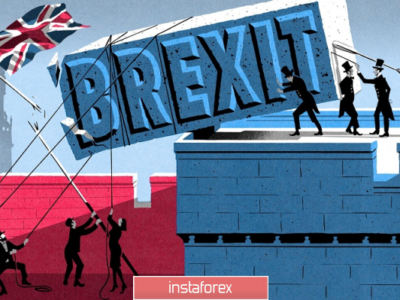Who’s Leaving London after the Brexit?
Even before the EU referendum ended, firms and individuals have already been worried about the repercussions of a Brexit, with some deciding to jump ship from all the uncertainty early on. For one, changes in immigration and social benefits could mean a significant change in living conditions while new trade agreements and corporate policies could affect businesses. Here’s a look at who’s leaving London because of the Brexit.
Big Businesses
Earlier in the month, a survey conducted by the Institute of Directors revealed that as many as one in five firms are considering moving their operations out of the United Kingdom because of Brexit issues.
The likes of Vodafone, which is the seventh largest company out of the FTSE 100, has expressed doubts on whether it will continue to keep its headquarters in London if it means losing access to a single market. Goldman Sachs is also not ruling out a move, as its spokesman mentioned that it’s still unclear if the positive attributes to staying in the UK will remain in place even after it exits the EU. Citigroup has 8,000 workers in London and might have to move 2,000 positions elsewhere while Bank of America has more than 5,000 workers in the UK and is likely to shift nearly 1,400 jobs outside of London.
Among the concerns listed by these companies are the possibility of London losing its top status as a financial hub, lagging behind New York and Tokyo if regulations become stricter, and the likelihood of giving up its dominance in euro-denominated banking activities. After all, clearinghouses in London manage close to $500 trillion in trades in the global market, so giving up this position could deal a huge blow to financial companies in the UK.
A briefing from Deutsche Bank seen by Business Insider suggested that investment banks immediately leaving the UK could benefit from the so-called first-mover advantage, exploring other markets in Ireland, France, and Germany before the rest of their competition. In addition, as banks ramp up hiring operations in those areas, staff shortages could be experienced by those who leave the UK too late.
Apart from banking firms, media and tech companies are also on the fence when it comes to retaining their London offices. Large American companies like Facebook and Google have chosen the UK as one of their main global hubs due to its large English-speaking population. Apart from that, the regulatory aspect has been one of the biggest appeals of setting up shop in London, as firms are able to benefit from relatively lax digital and broadcasting regulations while expanding their market to other members of the European Union.
Investors, Employees, and Startups
In the same survey by the Institute of Directors, some companies have also indicated plans to freeze investment and hiring while waiting for the outcome of the EU negotiations. Out of the 1,000 businesses included in the survey, 5% noted that they were set to make some of their workers redundant. This has significant repercussions on their employees, as many worried that they could lose their jobs in effect.
In fact, some companies have already begun shifting some jobs out of the UK onto other parts of the EU and in the US. JP Morgan has warned that 4,000 positions might have to be cut while HSBC has said that a thousand workers in London might need to be relocated to France. Among other locations being considered are Luxemborg, Canada, and Hong Kong.
A few startup companies which have also taken advantage of the encouraging regulatory conditions in the UK are also thinking twice about staying. These include companies that focus on cryptocurrencies such as bitcoin, which has been relatively welcome in London versus other cities like New York. Owners of small tech companies and members of the startup community such as co-founder of Lastminute.com Brent Hoberman say that the were shell-shocked by the Brexit decision, worried that the country might move backwards instead of forward when it comes to fostering these developments.
If these companies are inclined towards leaving London, investors and venture capitalists are also worried about what the Brexit could bring. One of their biggest concerns are the companies’ ability to attract talent, putting a drag on the potential for startups to grow in the country. Raising capital has also proven to be difficult in the weeks leading up to the EU referendum and afterwards, as the declining value of the pound limits the impact of funding.
EU Citizens and Migrants
Although no actual changes in free movement have been announced, a number of EU citizens residing in London or other parts of the UK thought it best to leave pre-emptively or risk being labeled illegal immigrants overnight. Some migrants worry about potential discrimination if they stay in the UK, likely choosing the safer option of returning to their home country instead.
As it is, more than 2 million EU citizens are facing a lot of uncertainties about their future, which is in the hands of the UK government and EU officials at this point. Still, the government also has to think about the future of 1.2 million Brits working or residing in EU nations before forcing anyone out of the UK.
Of course it all boils down to what is agreed upon by the UK government and EU officials in Brussels. Prime Minister May has mentioned that Article 50 will probably be invoked by the end of this year at the earliest, giving government officials enough time to figure out how to lobby for what’s best for UK companies, residents, and citizens.
Still, as the Deutsche Bank briefing pointed out, there remains no clarity in the nature of future trading between the UK and the EU until the negotiations are over, which could take as much as two years. Prime Minister May has also said that the government doesn’t plan on retaining free movement across borders, and this might mean that London would have to give up some of its privileges in exchange.
The post Who’s Leaving London after the Brexit? appeared first on Forex.Info.













